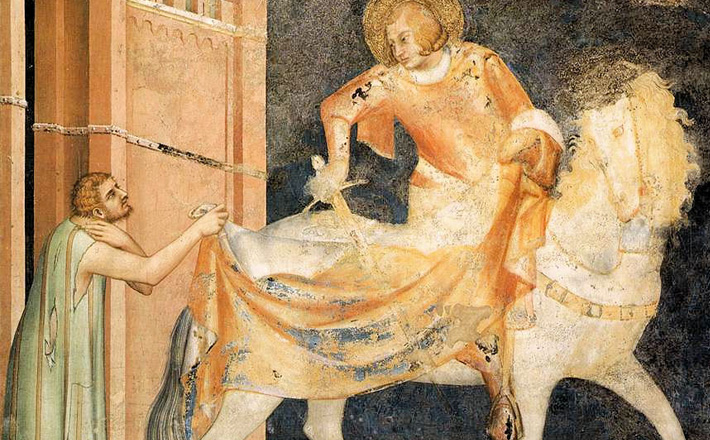Commentary on 1 Corinthians 3:10-11, 16-23
Whom should you follow and why?
This question confronts us in numerous realms. We have to choose leaders in our politics. We have to determine what leaders to follow in our churches. As pastors, we have to figure out what sorts of leaders we want our people to be.
First and Second Corinthians both hold a mirror up for us, providing us with an opportunity to see ourselves if we will look hard enough. When we read 1 Corinthians it is easy to start dissecting the church divisions and to call our people to the unity that is ours in Christ. But as pastors, preachers, and teachers, are we willing to call them to a style of ministry and leadership that our years of training cannot guarantee that we ourselves possess?
Wisdom, part 1: Wisdom is Christ
Paul refers to himself as a “skilled master builder” (1 Corinthians 3:10, NRSV). The Greek word that the NRSV translates “skilled” is sophos, “wise.” “Wisdom” looms large over the first few chapters of 1 Corinthians.
God’s wisdom contrasts sharply with the wisdom of the world, disappointing and subverting the wisdom of the Greeks (1 Corinthians 1:17-25, 27). It is the mystery that is only known by the Spirit (1 Corinthians 2:6-8). And, most important of all, Christ himself is God’s wisdom (1 Corinthians 1:30).
As a “wise” master builder, Paul builds with what he has been given: Christ himself. Christ, more specifically Christ’s crucifixion and resurrection, is the foundation of the church. This is the message that Paul proclaimed, the only starting point for Christian life in God.
The question Paul is holding up to the Corinthians from various angles is, How will you continue to build? If they continue to build wisely then they will build with and as Christ. But this means, paradoxically, that the foolishness of the cross, and the way of the cross for God’s people, must continue to be the means and materials (1 Corinthians 2:1-5; 4:8-21). Christ is God’s wisdom.
Wisdom, part 2: the Spirit
Starting with Christ isn’t enough. In verses that the lectionary bypasses Paul warns that our ongoing ways of building will be judged. When we read about “the Temple of God” in verses 16-17 it is critical to remember that here the Temple is not each person but the community as a whole. Paul is using the plural: “Y’all are God’s Temple and God’s Spirit dwells in y’all.”
In 1 Corinthians 2 Paul had told the Corinthians that the Spirit reveals God’s wisdom. Thus the Spirit who reveals and the Christ who is revealed are united as the source and content of God’s wisdom. Being faithful in the building of the Temple of God means continuing to make it a Christ-place, built in the name and manner of Christ’s own work.
This is a stern warning for us about how we go about the business of building the church together. The church can be “destroyed” through the failed efforts of its would-be leaders. So what does faithful building looks like?
Wisdom, part 3: Folly
Verses 18-23 are the point at which Paul’s warning holds up that mirror I mentioned above, asking us to reflect on what, exactly, we think the wisdom of God consists of.
There is godly wisdom and there is worldly wisdom. So far, so good. But here’s where we run into trouble: when worldly wisdom baptizes itself in the name of Jesus, and masquerades as the wisdom of God.
Remember that the divisions starting to erupt in Corinth are divisions among Christian teachers. All of them are trying to lead the people forward into faithful ways of following Jesus. The temptation here is not to abandon Jesus for the sake of secular worldly wisdom. The temptation is to make Jesus conform to our culturally shaped patterns and expectations of greatness.
“If you are wise in this age, you should become fools so that you may become wise.” These words stand as a stark warning to us as many of us live in Christian sub-cultures that have created Christianized versions of the world’s paths of influence.
Many of us belong to denominations that have decided we need to have masters degrees before we can be ministers. We must not confuse this learning with the wisdom of God.
Many of us have pursued doctoral degrees to further our learning about theology or ministry. We must not confuse this learning with the wisdom of God.
The Christian books that sell often come to us from people with large platforms, large churches, institutions of higher education. We must not confuse such climbing of the ladders of Christianized market capitalism with the wisdom of God.
God’s wisdom is not the knowledge and learning we obtain in schools. It is not put on display in successful ministry ventures. Each of these is a Christianized version of the world’s notion of wisdom, power, and success.
Why should no one boast in people (verse 21)? Because these sorts of worldly-gained distinctions do not apply within the household of God. Here, all is the crucified Christ and the crucified Christ is all.
“Wise leadership” is found in the lives and ministries of those who embody Christ’s cross-shaped love. That’s the message of 1 Corinthians 1-4. This folly, the foolishness of self-giving love, is wisdom.
The divisions plaguing the Corinthians derive from their misplaced desire to find their identity in particular earthly leaders (“I’m with Calvin!” “I’m with Luther!” “I’m with Wesley!” “I’m with Christ!”) Wisdom unravels this partisanship by reminding us that in Christ all things are ours. Therefore, all life-giving ministry will be in Christ. All church-building ministry will thus look like the self-giving love that Jesus put on display in the cross.
To the world, this will always look like folly. But for those who are the called, this is the wisdom of God.


February 19, 2017